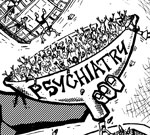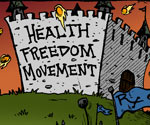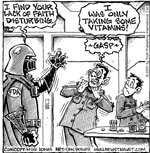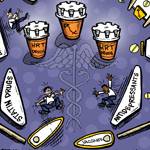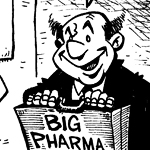The Effectivity of Niacin for Lowering Cholesterol
| Share on Facebook | Share on Twitter | Share on Google+ |
There has been a steady growth of people who are using niacin for lowering cholesterol levels. Taking large doses of niacin is regarded to be a natural means to lower cholesterol levels without the unwanted side effects experienced with regular medications. To top this off, niacin supplements have been found to be as effective as, if not more effective than statin drugs in lowering bad cholesterol. But the question that remains is: what is the real score between niacin and cholesterol? Does niacin really work the way they say it works?
Niacin Benefits
Niacin (or nicotinic acid) is one of the water-soluble B vitamins, which has gained much popularity as a cholesterol lowering therapeutic vitamin. It is also being widely used in a treating a number of conditions, which include psychosis, schizophrenia, diabetes, in reducing acne and in promoting weight loss, among many others.
Popularity of Niacin for High Cholesterol
The most widespread and proven use for niacin as a drug / supplement is for lowering cholesterol. It positive effect not only on cholesterol but also on overall heart health has been popular for many years now. In fact, it is constantly suggested as an alternative to statin drugs for those who cannot take them or those who simply cannot tolerate the side effects of statins.
Niacin and Its Effect on Cholesterol
Niacin and LDL. High doses (typically in the 1000 to 3000 mg range) of niacin have been seen to significantly lower low-density lipoprotein levels, coined as the "bad cholesterol."
Niacin and HDL. Perhaps the more important question here is: Will niacin increase HDL levels as well? Well, unlike most statin drugs which only lower LDL cholesterols, niacin has the ability to increase high-density lipoprotein levels - the good cholesterol.
Niacin and Total Cholesterol. With its LDL lowering and HDL elevating effect, the total cholesterol level is not decreased but more importantly, the all-important ratio between the two is improved significantly. This way, cholesterol is maintained at its most healthy level.
Niacin and Triglyceride. Surprisingly, niacin does not only have positive effects on cholesterol levels but it can also lower triglyceride levels. This translates to better heart health and reduced risk of heart problems.
Side Effects of Niacin for Cholesterol
While niacin may be effective, it is always best to ask your doctor before taking niacin to lower cholesterol. The main problem with taking niacin is the bothersome side effects that it almost always brings - from the flushing of the face, itching and upset stomach, to dizziness, increased heart rate and liver problems. These side effects, however, are merely bothersome. They are not in any way fatal and are usually reversible.
Niacin to Lower Cholesterol: Recommended?
The main apprehension that surrounds the use of niacin for lowering cholesterol is the bothersome side effects that it brings. However, considering that statin drugs may cause side effects that are even worse than that of niacin, the latter may prove to even be a better choice. Intake of niacin along with cholesterol-lowering medications is also not a bad idea. With its promising effects, the use of niacin for lowering cholesterol will surely gain more popularity in the coming years.
-
Skin CareMen Skin Care
-
Free ResourcesFree eBooks
-
A good laugh and a long sleep are the best cures in the doctor's book.Irish Proverb
-
What We RecommendNatural Cholesterol Supplement
- Lower levels of LDL
- Higher levels of HDL
- Lower levels of triglycerides
- Without negative side effects
-



